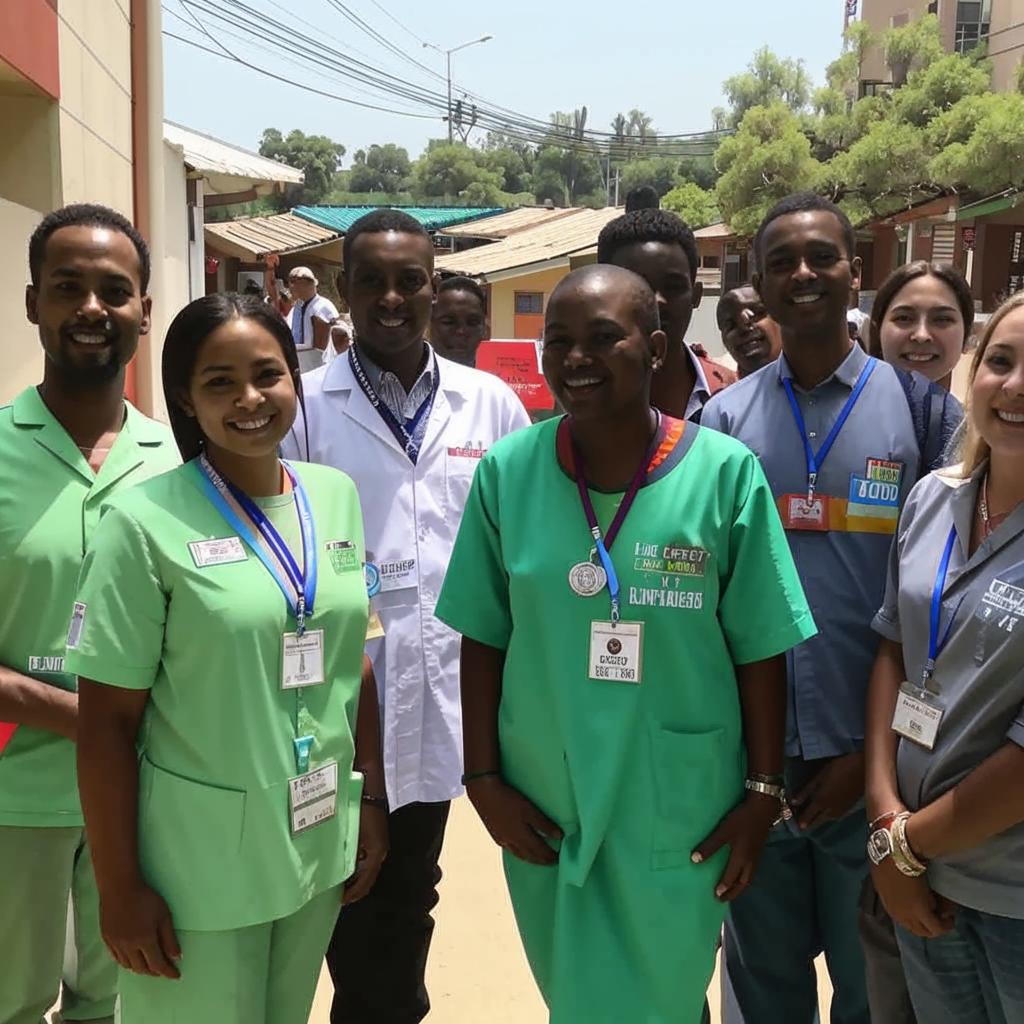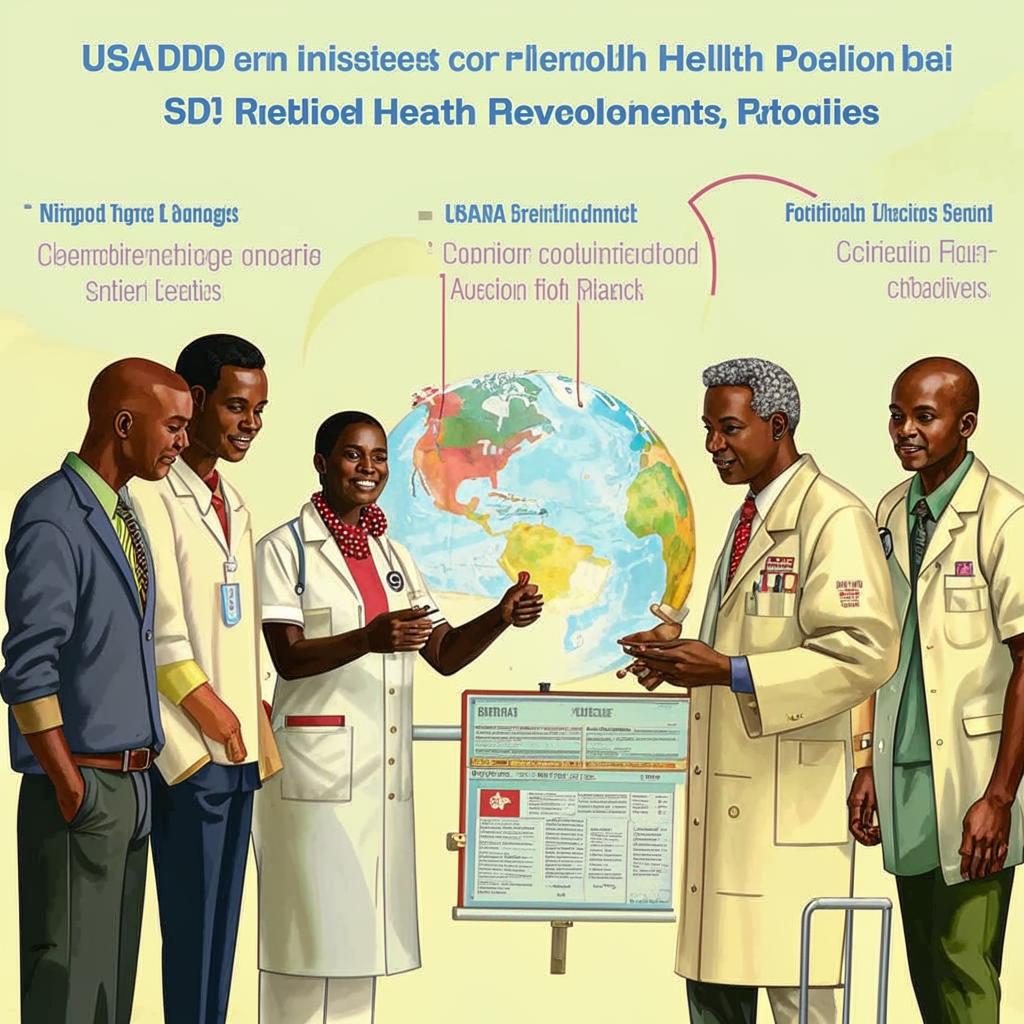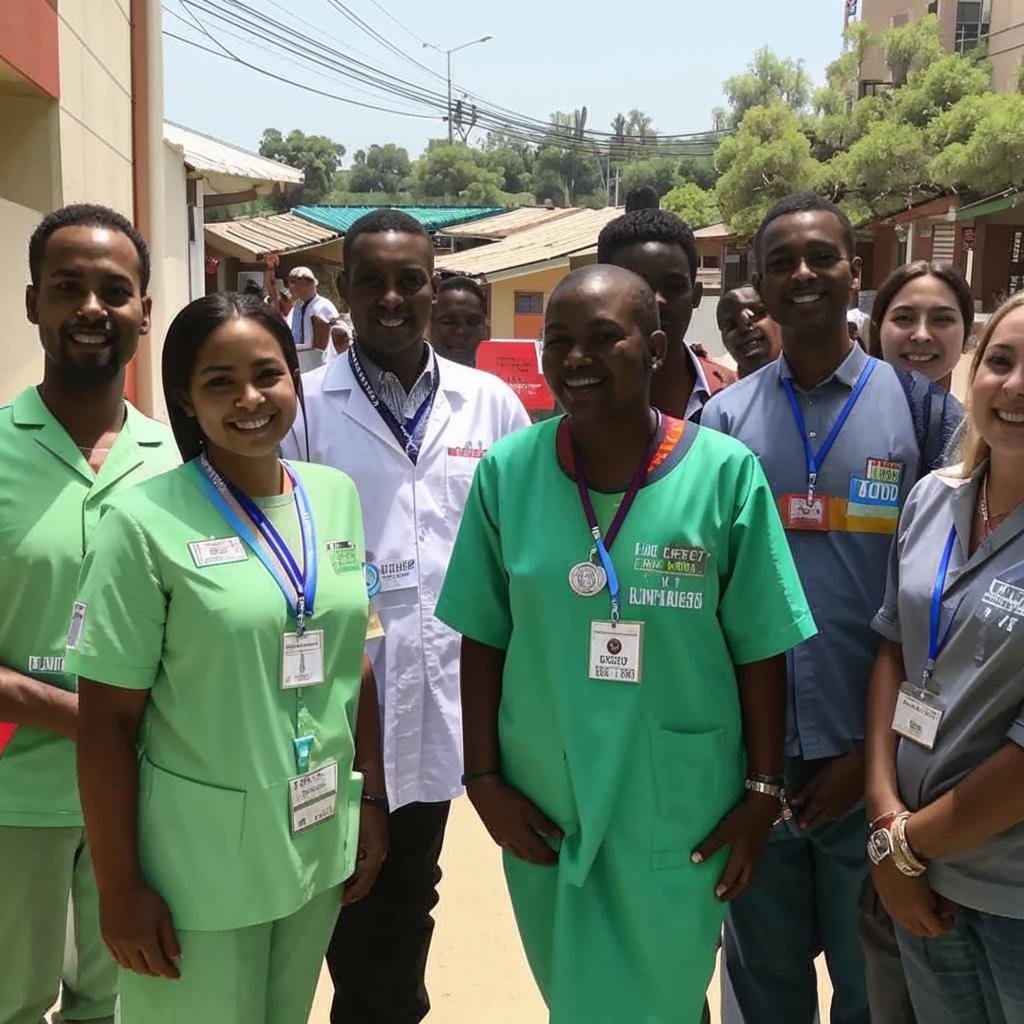
The Role of Health Development Officers in USAID
The United States Agency for International Development (USAID) is a U.S. government agency that provides economic and humanitarian assistance to countries around the world. Health Development Officers (HDOs) are key personnel within USAID who are responsible for planning, implementing, and monitoring health programs.
Health Development Officers: Cornerstones of Global Health
The US Agency for International Development (USAID) plays a pivotal role in improving global health outcomes. A key cog in this effort is the Health Development Officer (HDO), medical professionals who serve as the face of USAID’s health initiatives worldwide.
HDOs are responsible for designing, implementing, and monitoring health programs that address the most pressing health challenges facing developing countries. These include combating infectious diseases, improving maternal and child health, and strengthening health systems. They collaborate closely with local partners, including governments, NGOs, and community organizations, to ensure that programs are tailored to local needs and have a lasting impact.
The work of HDOs is complex and multifaceted. They must have a deep understanding of global health issues, as well as strong technical and analytical skills. They must also possess excellent communication and interpersonal abilities to foster partnerships and build trust.
One of the primary responsibilities of HDOs is to assess health-related needs and identify opportunities for improvement. This involves conducting thorough assessments of health systems, including data analysis, stakeholder interviews, and field visits. Based on these assessments, HDOs develop comprehensive health programs that target specific problems and address underlying causes.
HDOs play a crucial role in strengthening health systems by providing technical assistance, training, and capacity building. They work with local health officials to improve the quality of healthcare services, expand access to essential medicines, and train healthcare professionals. By strengthening health systems, HDOs help countries become more resilient to health crises and improve the overall health of their populations.
Furthermore, HDOs are actively involved in emergency response and recovery efforts. They provide immediate assistance during natural disasters, disease outbreaks, and other emergencies. They coordinate with humanitarian organizations to ensure that affected populations have access to essential health services, including medical care, clean water, and sanitation.
The role of HDOs is critical to the success of USAID’s global health mission. By providing technical expertise, building partnerships, and improving health systems, HDOs empower communities and countries to achieve better health outcomes. They are truly a force for good, transforming lives and improving the health of millions worldwide.

USAID’s Strategies for Improving Health Outcomes through Development Officers
The Role of Health Development Officers in USAID
In the global fight against disease and health inequity, the United States Agency for International Development (USAID) plays a vital role. Among its strategies for improving health outcomes, the agency employs Health Development Officers (HDOs) who serve as a cornerstone of its international health initiatives.
HDOs are public health professionals with expertise in a wide range of disciplines, including infectious diseases, maternal and child health, nutrition, and health systems strengthening. Working closely with local partners, they provide technical assistance, build capacity, and support country-led efforts to improve health outcomes in developing countries.
One of the primary roles of HDOs is to assess the health needs and priorities of the communities they serve. Through extensive stakeholder engagement and data analysis, they identify the most pressing health challenges and develop targeted interventions accordingly. This evidence-based approach ensures that USAID’s investments in health are aligned with the needs of recipient countries.
HDOs also play a crucial role in designing and implementing health programs. They work with local health authorities, non-governmental organizations, and community groups to develop sustainable and culturally appropriate solutions. By fostering collaboration and ownership among stakeholders, HDOs ensure that programs are tailored to the specific context and have the best chance of success.
Furthermore, HDOs provide technical assistance to strengthen health systems in developing countries. They work to improve the efficiency and effectiveness of health delivery mechanisms, from supply chains to human resources management. By strengthening health systems, HDOs contribute to the long-term sustainability of health gains and help countries become more resilient to health crises.
Beyond their technical expertise, HDOs serve as cultural bridges between the United States and partner countries. They build relationships of trust and respect with local communities, enabling them to understand and address health issues within a cultural context. This cultural sensitivity is essential for fostering meaningful partnerships and ensuring the success of health interventions.
In conclusion, Health Development Officers are indispensable to USAID’s efforts to improve health outcomes in developing countries. As technical experts, program designers, capacity builders, and cultural mediators, they play a multifaceted role in assessing needs, designing interventions, and strengthening health systems. Through their dedicated work, HDOs contribute significantly to the agency’s mission of promoting global health and well-being.

Success Stories of Health Development Officers in USAID Programs
In the realm of global health, the United States Agency for International Development (USAID) plays a pivotal role in advancing health outcomes around the world. Among its dedicated team of professionals, Health Development Officers (HDOs) stand out as catalysts for transformative change.
HDOs are the backbone of USAID’s health programs, serving as technical experts and advisors to partner countries. Their responsibilities encompass a wide range of health-related areas, from disease prevention and control to health system strengthening and nutrition. Beyond their technical expertise, HDOs are also skilled diplomats, capable of navigating complex cultural and political landscapes to foster collaboration and build partnerships.
One such HDO is Dr. Sarah Jones, who played a pivotal role in USAID’s response to the Ebola outbreak in West Africa. Dr. Jones’s expertise in infectious disease epidemiology enabled her to provide invaluable technical guidance to governments and health workers alike. Through her leadership, USAID’s support for surveillance, contact tracing, and treatment centers proved instrumental in containing the spread of the deadly virus.
Another notable HDO is Mr. David Smith, whose work in maternal and child health in Indonesia has had a profound impact on the lives of countless families. Mr. Smith’s efforts focused on improving access to quality healthcare, reducing infant and maternal mortality rates, and empowering women and girls through education and empowerment programs. As a result of his dedication, Indonesia has made significant strides towards achieving its health development goals.
The impact of HDOs extends far beyond individual success stories. Their collective expertise and unwavering commitment have contributed to some of the most significant health achievements in recent history. From the virtual elimination of measles to the significant reduction in malaria cases, HDOs have played a vital role in improving the health and well-being of millions of people worldwide.
Their work often involves collaborating with local communities, empowering them to take ownership of their health and create sustainable solutions. By fostering a culture of self-reliance, HDOs help ensure that the positive impact of USAID’s programs endure long after their departure.
As the world continues to face complex health challenges, the role of HDOs in USAID programs remains more critical than ever. Their dedication, expertise, and ability to build partnerships are essential for achieving the agency’s mission of promoting health and saving lives around the globe.
Health Development Officers (HDOs) play a critical role in USAID’s efforts to improve global health. They have a unique set of skills and experiences that allow them to work effectively with local partners to design, implement, and monitor health programs. HDOs are responsible for a wide range of tasks, including:
Assessing needs and designing programs
Managing budgets and resources
Building partnerships with local organizations
Monitoring and evaluating program progress
Advocating for health policy changes
HDOs are essential to USAID’s mission of improving the health of people around the world. They bring a wealth of knowledge and experience to the field, and their work helps to ensure that USAID’s programs are effective and sustainable.



